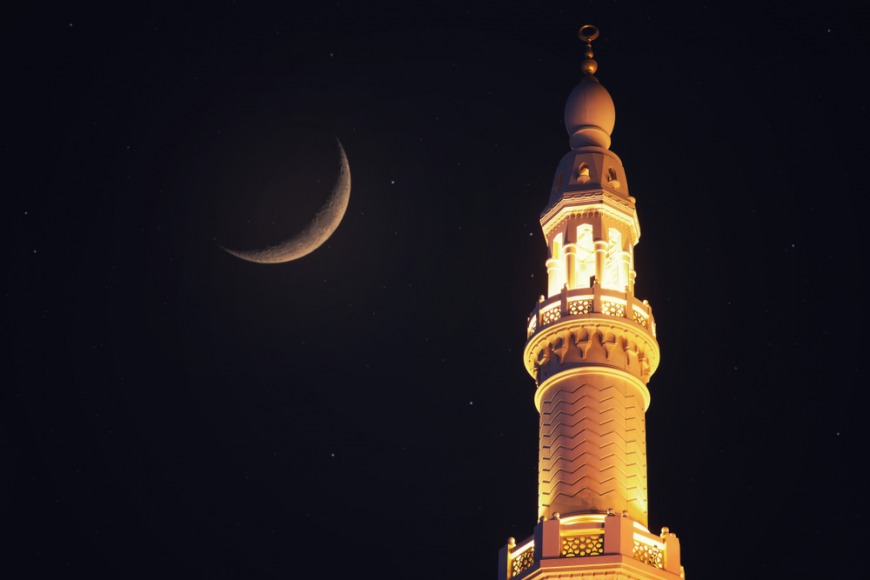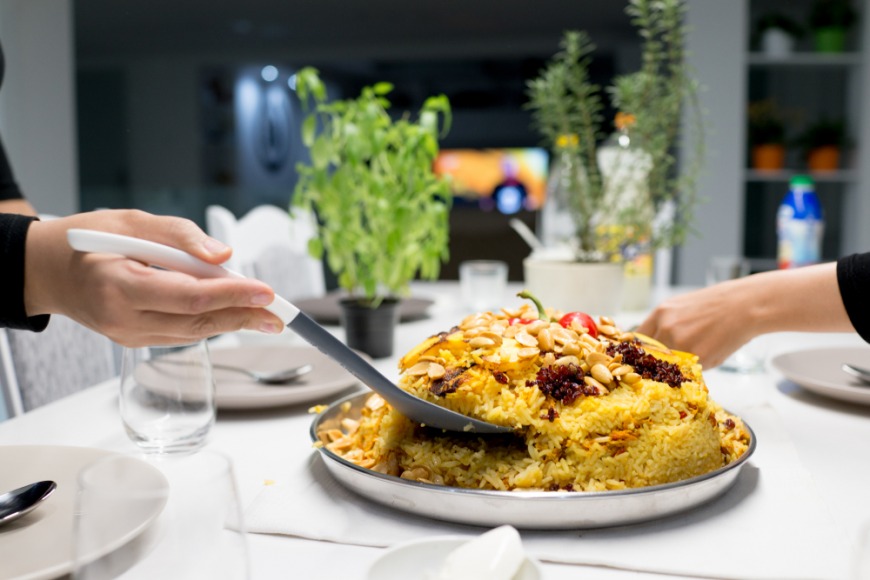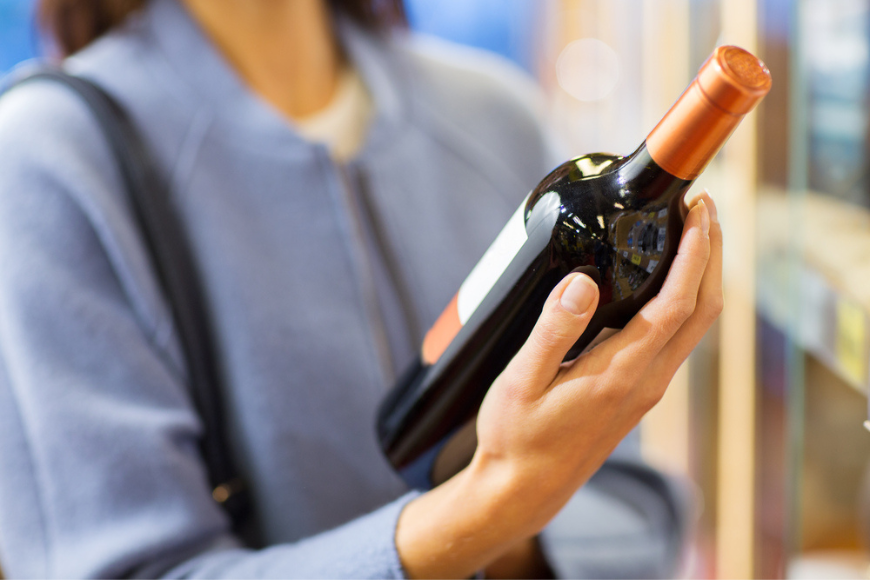Despite lockdown, the rituals of the Holy Month will remain almost the same
15 April 2020
| Last updated on 26 April 2020
Mosques such as Jumeirah Mosque (pictured) will be closed throughout the Holy Month
Find our guide to the Holy Month, and what to expect during the COVID-19 lockdown...
Normally for our expatriate readers experiencing their first Ramadan in Dubai and the UAE, we'd be telling tales of iftars, social gatherings, community and charity initiatives, and shopping extravaganzas.
However for Ramadan 2020, the Holy Month and its social rituals are going to be a lot more low-key due to the novel coronavirus that's swept across the globe. Nevertheless, the values of Ramadan will remain the same.
SEE ALSO: Top tips for expats during Ramadan in the UAE
This year, the Holy Month of Ramadan is predicted to begin on April 23rd, 2020, but the official moon sighting committee will confirm this closer to the date. During this month, Muslims across the world participate in a month-long fast. Observers fast from sunrise to sunset, and it's the holiest month on the Islamic calendar.
If this is your first Ramadan, or you're in need of a refresh, here's our guide to Ramadan 2020 for you - and what to expect throughout the Holy Month during the COVID-19 pandemic.
Ramadan and Eid dates for 2020
Ramadan is the ninth month of the Islamic lunar calendar, and it is one of the most important months for Muslims. It is believed that it is the month during which the Qu'ran was first revealed to the Prophet Mohammed (PBUH).
The Islamic and Gregorian calendars differ, however, which means the dates for Ramadan change every year. This also applies to other religious holidays in the UAE.
While we're able to predict the start of Ramadan - for 2020, it is expected to begin on April 23rd - a moon-sighting committee must confirm the official starting date shortly before the Holy Month begins.
Following Ramadan, Eid Al Fitr is observed, then a month later, Eid Al Adha occurs.
Keep these dates in your calendar...
- When is Ramadan? On or around Thursday 23rd April, to Saturday 23rd May, 2020
- When is Eid al-Fitr? On or around Saturday 23rd May, to Sunday 24th May 2020
- When is Eid al-Adha? On or around Thursday 30th July, to Sunday 2nd August 2020
Did you know? The word 'Ramadan' itself comes from the Arabic root ramida or ar-ramad, which means scorching heat or dryness.

The official start date of Ramadan 2020 will be confirmed by the moon-sighting committee
Fasting during Ramadan
During the Holy Month, Muslims worldwide fast from sunrise to sunset for 30 consecutive days.
Muslims refrain from consuming food, drinking liquids, smoking and engaging in intimate relations. They are also instructed to refrain from sinful behaviour that may negate the act of fasting, like fighting (unless self-defence) or false speech.
Spiritual rewards, known as ‘thawab’, for fasting are believed to be multiplied within the month of Ramadan. Muslims are also encouraged to increase their acts of good deeds and charity, as well as offering increased ‘salat’, meaning prayers.
The most common observances for Muslims during Ramadan:
- Fasting
- Charity, known as ‘zakat’ and ‘sadaqah’
- Nightly prayers
- Recitation of the Quran
Fasting or 'sawm' is obligatory for adult Muslims, except for individuals who have an illness, are travelling, and are elderly, pregnant, breastfeeding, diabetic, chronically ill or menstruating. 'Sawm' is one of the five pillars of Islam which all Muslims are expected to follow.
It becomes compulsory for Muslims to begin fasting when they reach puberty, so long as they are healthy. Children can be encouraged to try fasting for shorter periods of time before reaching puberty age to help practice for later life.
When can someone break their fast in Ramadan?
Individuals with a medical condition are discouraged from fasting from the beginning, as well as pregnant women. These must abide by the rules of eating and drinking discreetly, away from public eyes.
However, individuals who knowingly break their fast during Ramadan must repent, and make up for that day of fast later on.
Non-Muslims during Ramadan in UAE
Normally, non-Muslim expatriates are encouraged to get involved in the spirit of the Holy Month by actively participating in community initiatives, or by attending an Iftar or Suhoor. However for 2020, none will be available to attend due to Coronavirus restrictions in place.
That doesn't mean you can't join in Ramadan in any way. You can still participate as a non-Muslim - here are some ideas:
- Exchange Ramadan greetings, especially towards the start of the month. ‘Ramadan Kareem’ is the most commonly used greeting, with the word ‘Kareem’ meaning ‘generous’. So basically, you’re wishing your friends, colleagues and strangers a generous Ramadan.
- Join in charitable efforts by donating to care and meal packages. For instance, organisations like Dar Al Ber Society are working together to deliver parcels to individuals who are suffering as a result of the COVID-19 outbreak, instead of distributing them at local mosques.
- Try fasting for a day. You may not physically be with your Muslim colleagues and friends, but you can try to fast yourself while isolating at home, then break your fast together at Iftar over Zoom or BOTIM.
Charitable efforts is a very important part of Islam, and is even more significant during Ramadan. You don’t have to be a Muslim to partake in these efforts, and there are lots of initiatives in Dubai that you can join in with.
A guide to Iftar and Suhoor
For fasting Muslims, Iftar is the meal to break their fast at sunset. Suhoor is the meal taken before sunrise, before the day of fasting begins. This can occur very early in the morning.
Usually across the UAE there would be hundreds of Iftar buffets and Suhoor events that you can participate in as a non-Muslim. However for 2020, these will not be happening due to the lockdown.
But this doesn't mean you can't partake in the rituals; due to lockdown restrictions being eased for Ramadan, family members are able to visit each other - but groups must not exceed 10 people. Alternatively, why not organise a virtual Iftar over the Internet? Arrange for a group of your friends to cook at your individual homes, then break fast together over Zoom, BOTIM, or any other video chat application.
SEE ALSo: What and when is Iftar and Suhoor during Ramadan?
Typically, a day of fasting is broken by a date and some liquids, after which international and Arabic dishes, as well as popular Ramadan juices, are enjoyed.
If you are self-isolating with your family at home, nominate one member of your family who is able to visit your local supermarket and stock up on Iftar and Suhoor ingredients that you can cook together in the safety of your home.

Fasting Muslims will be required to observe Iftar and Suhoor while at home
Eating and drinking in public
A common question asked by expats in Dubai is whether you can eat or drink in public during Ramadan? The quick answer is no. During daylight hours, everybody should refrain from eating, drinking, and smoking in public throughout the Holy Month.
For 2020, it shouldn't be too difficult to avoid these three things since residents and citizens should only be venturing out for short amounts of time, and only for essentials like groceries, the pharmacy, or medical emergencies.
If you do have to leave the home, make sure you maintain respect for those who are fasting during the day. Don't eat or drink in front of anyone; be it for work, or in public generally.
Any outlet able to offer take-away services during the lockdown at the moment, like coffee shops, should have curtains or blocked-out windows during the Holy Month. Any item purchased should not be consumed until you're home and hidden from public.
What else should you know?
Besides the no eating and drinking rule, there are some other important things non-Muslims living in Dubai should be aware of during the dates of Ramadan.
- Ensure you are dressed conservatively throughout Ramadan if venturing out of your home for essentials or an emergency
- Refrain from listening to music too loudly - this includes in your back gardens, or from your phone/tablet or computer
- Be extra considerate on the roads, especially around sunset
:: Despite the circumstances surrounding the Coronavirus outbreak, the team at ExpatWoman wish you Ramadan Kareem to you and your families.





























































































![We Tried [u]bk's Lively Garden Brunch at Mövenpick JLT Dubai We Tried [u]bk's Lively Garden Brunch at Mövenpick JLT Dubai](https://cdnexpatwomanfood.expatwoman.com/s3fs-public/urban%20bar%20and%20kitchen%20brunch%20main.png)







































